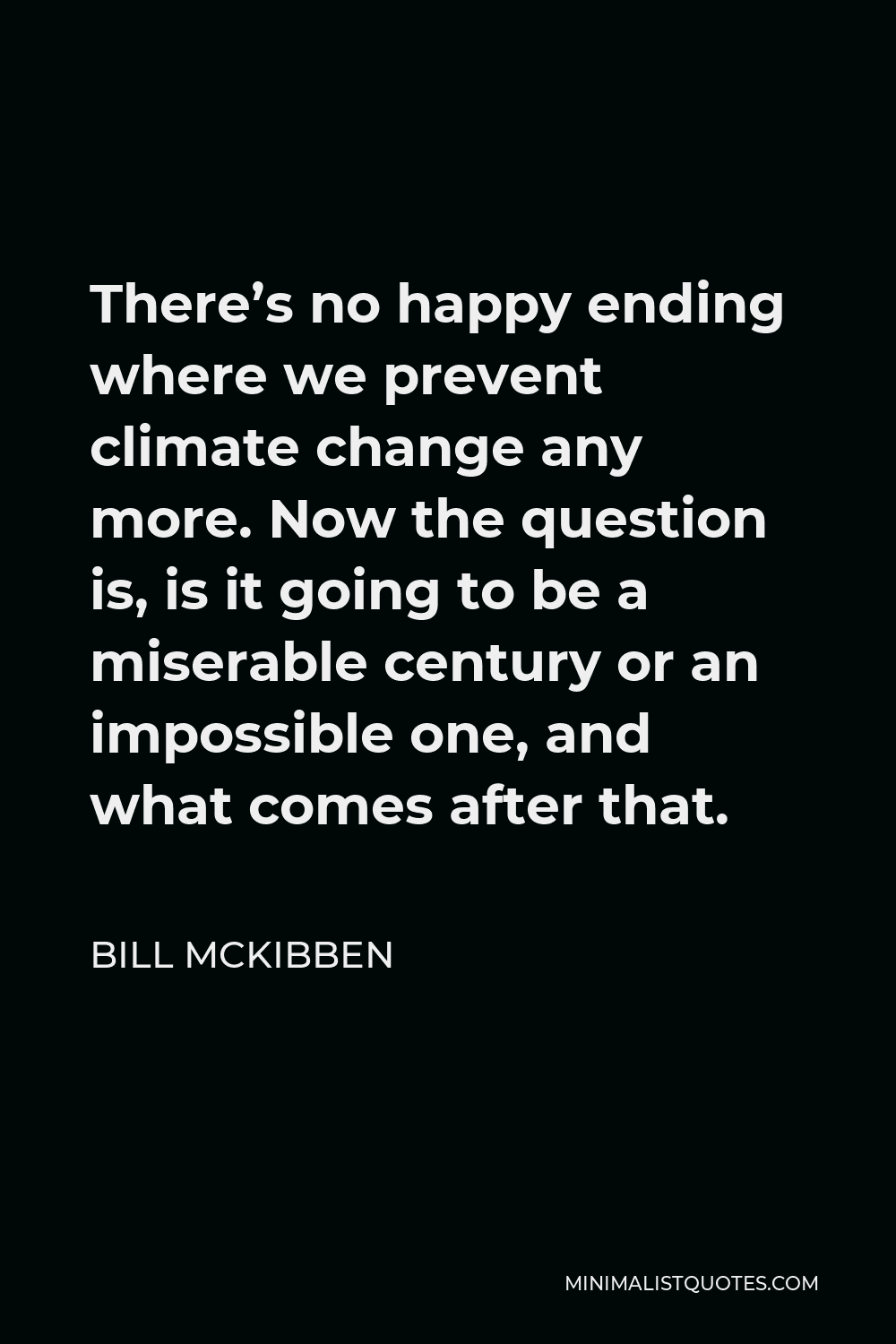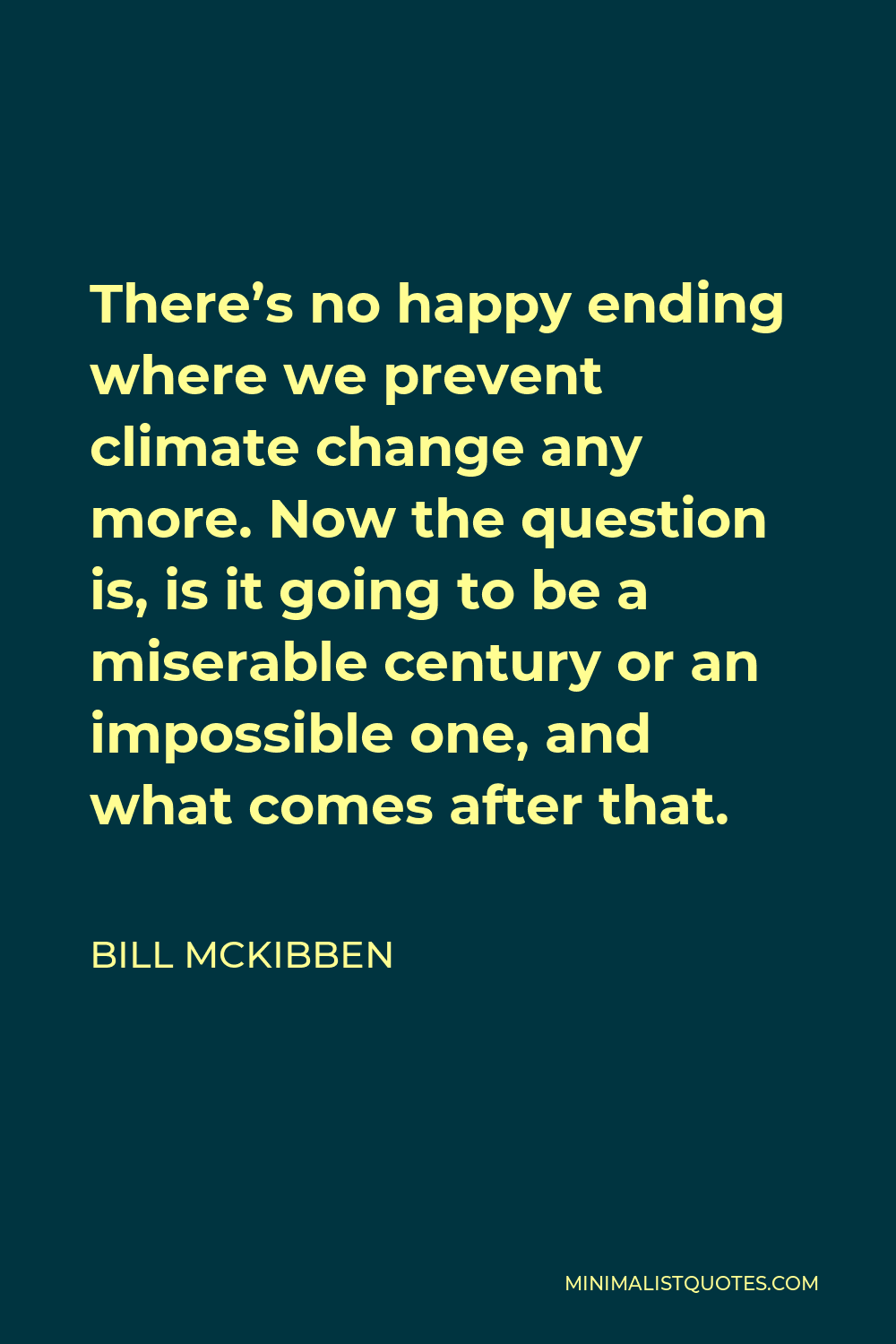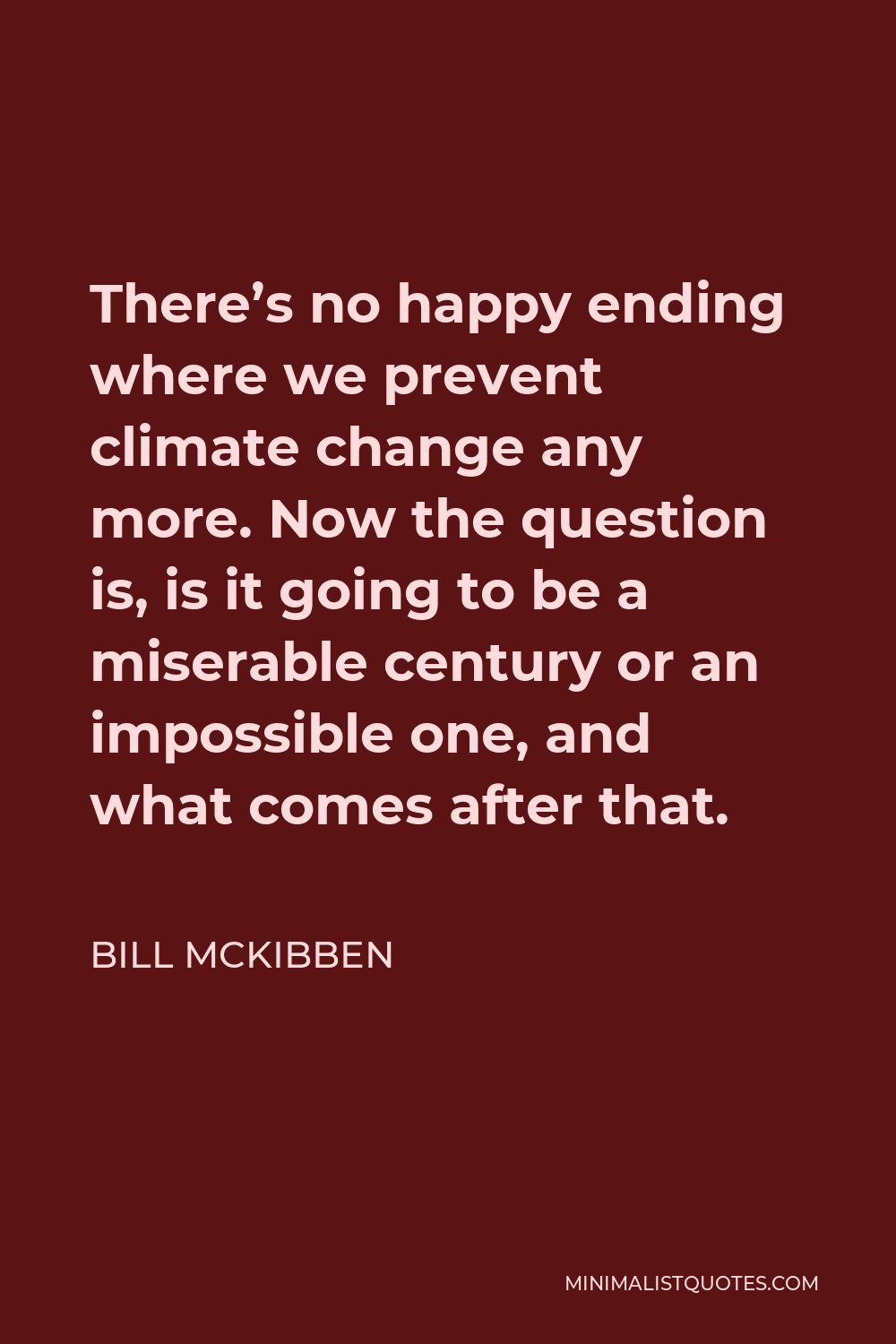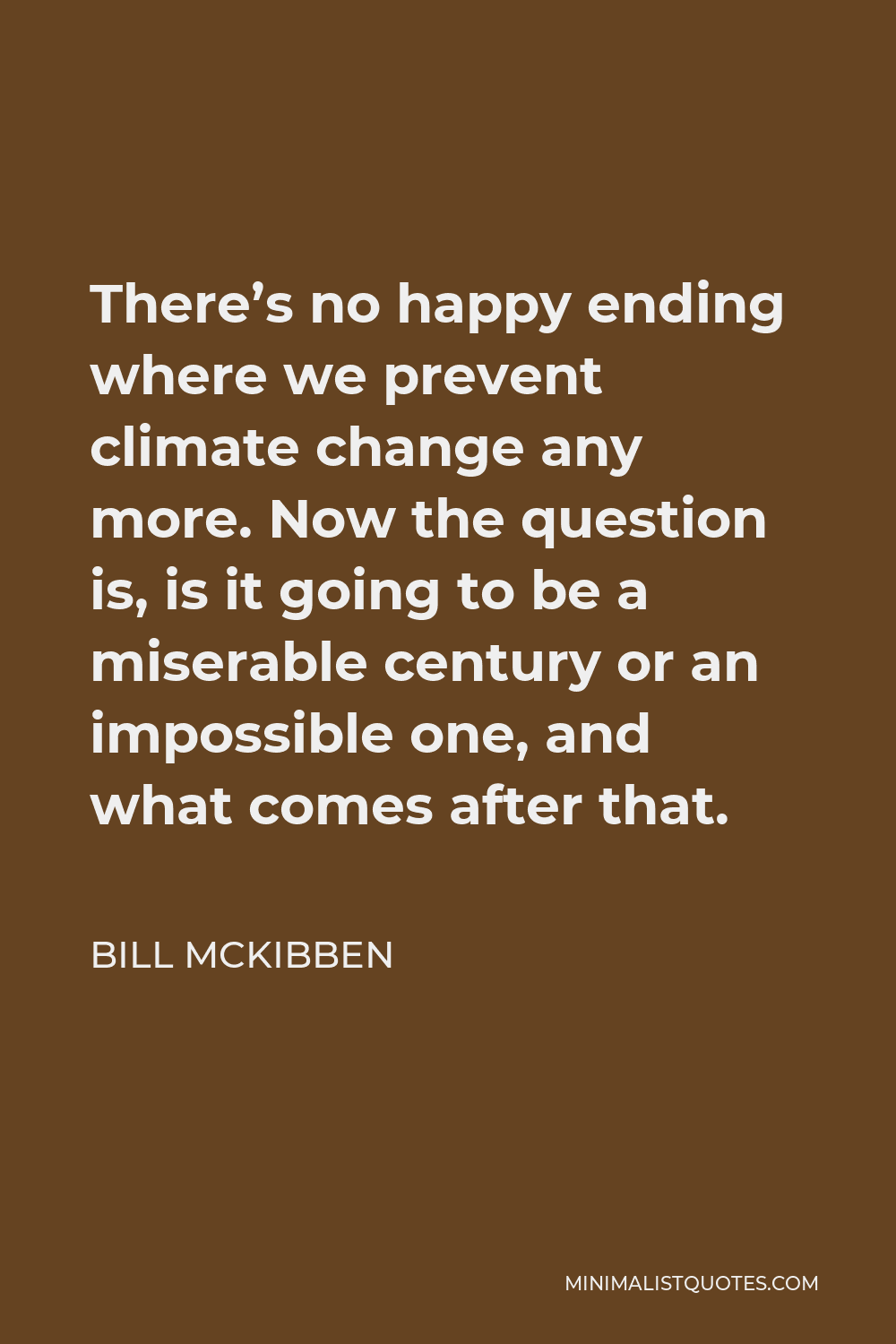In certain ways, I think the work in the Evangelical community has been the most interesting and the most promising. Partly because Evangelical congregations may be harder to convince about issues but, on the other hand, are more likely to do something about it.
BILL MCKIBBENThere’s no happy ending where we prevent climate change any more. Now the question is, is it going to be a miserable century or an impossible one, and what comes after that.
More Bill McKibben Quotes
-





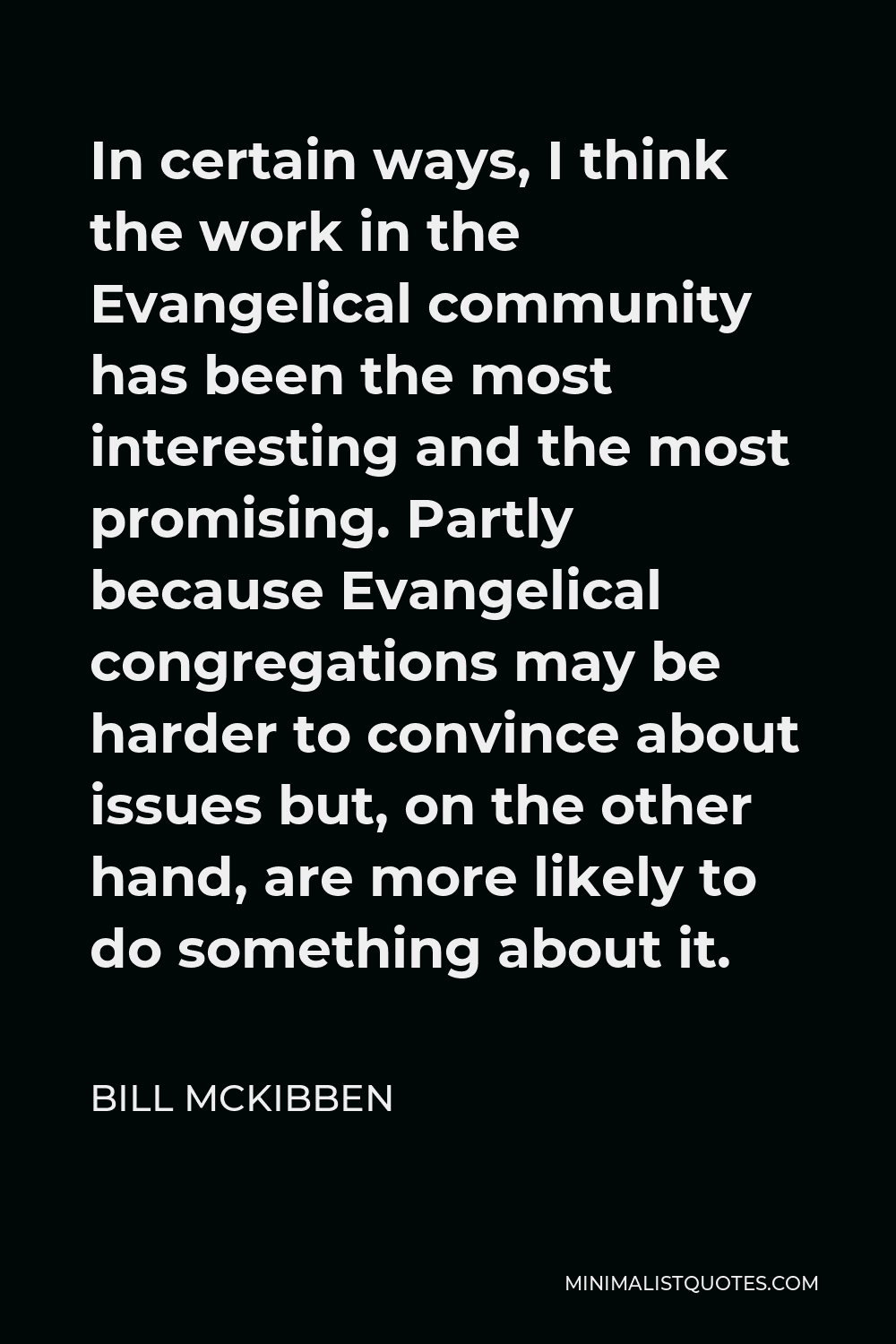
-





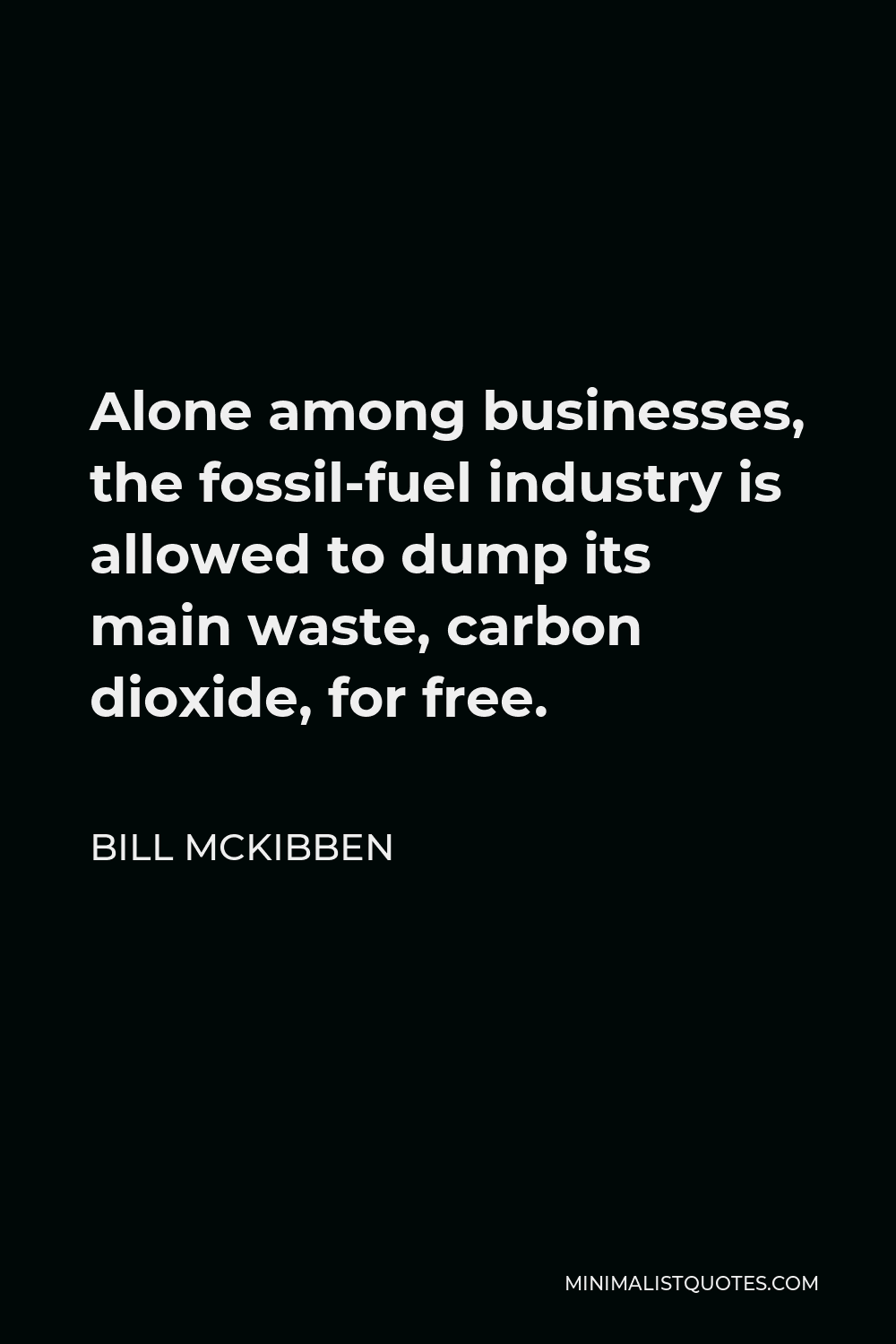
Alone among businesses, the fossil-fuel industry is allowed to dump its main waste, carbon dioxide, for free.
BILL MCKIBBEN -





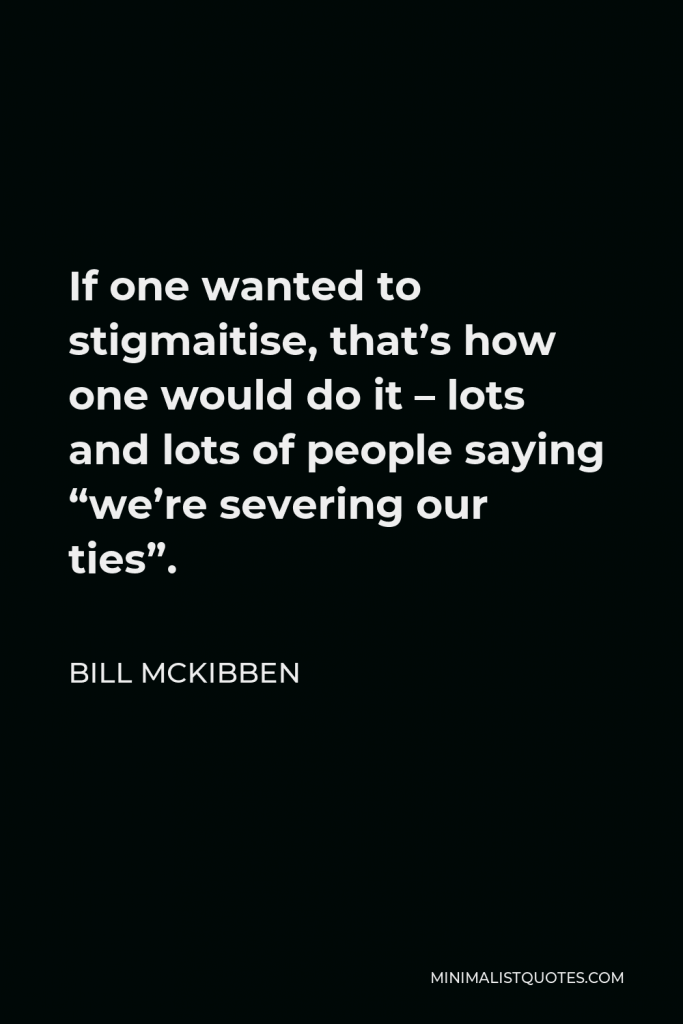

If one wanted to stigmaitise, that’s how one would do it – lots and lots of people saying “we’re severing our ties”.
BILL MCKIBBEN -





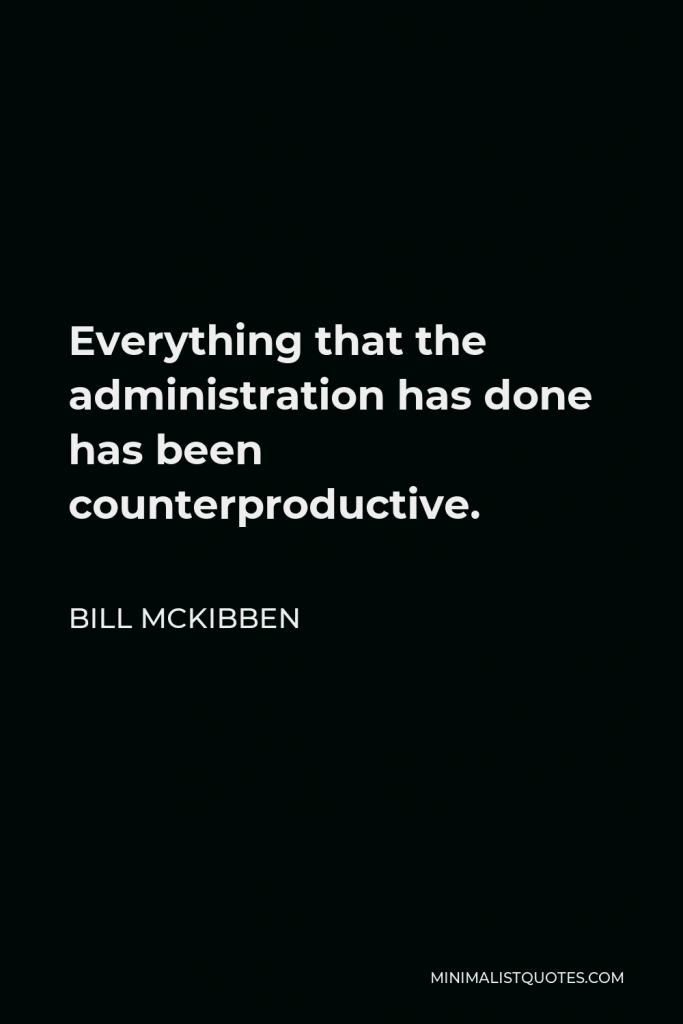

Everything that the administration has done has been counterproductive.
BILL MCKIBBEN -





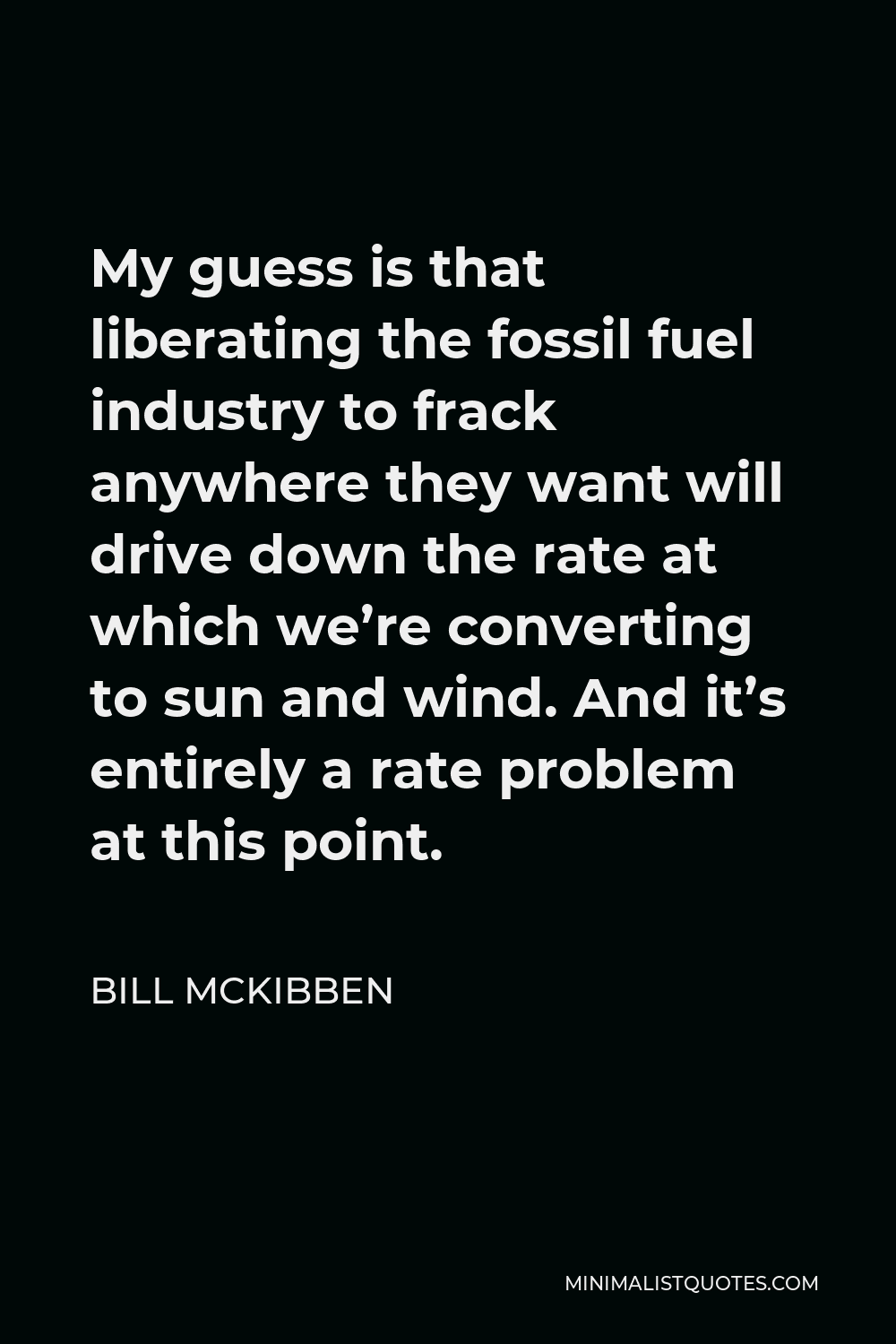
My guess is that liberating the fossil fuel industry to frack anywhere they want will drive down the rate at which we’re converting to sun and wind. And it’s entirely a rate problem at this point.
BILL MCKIBBEN -





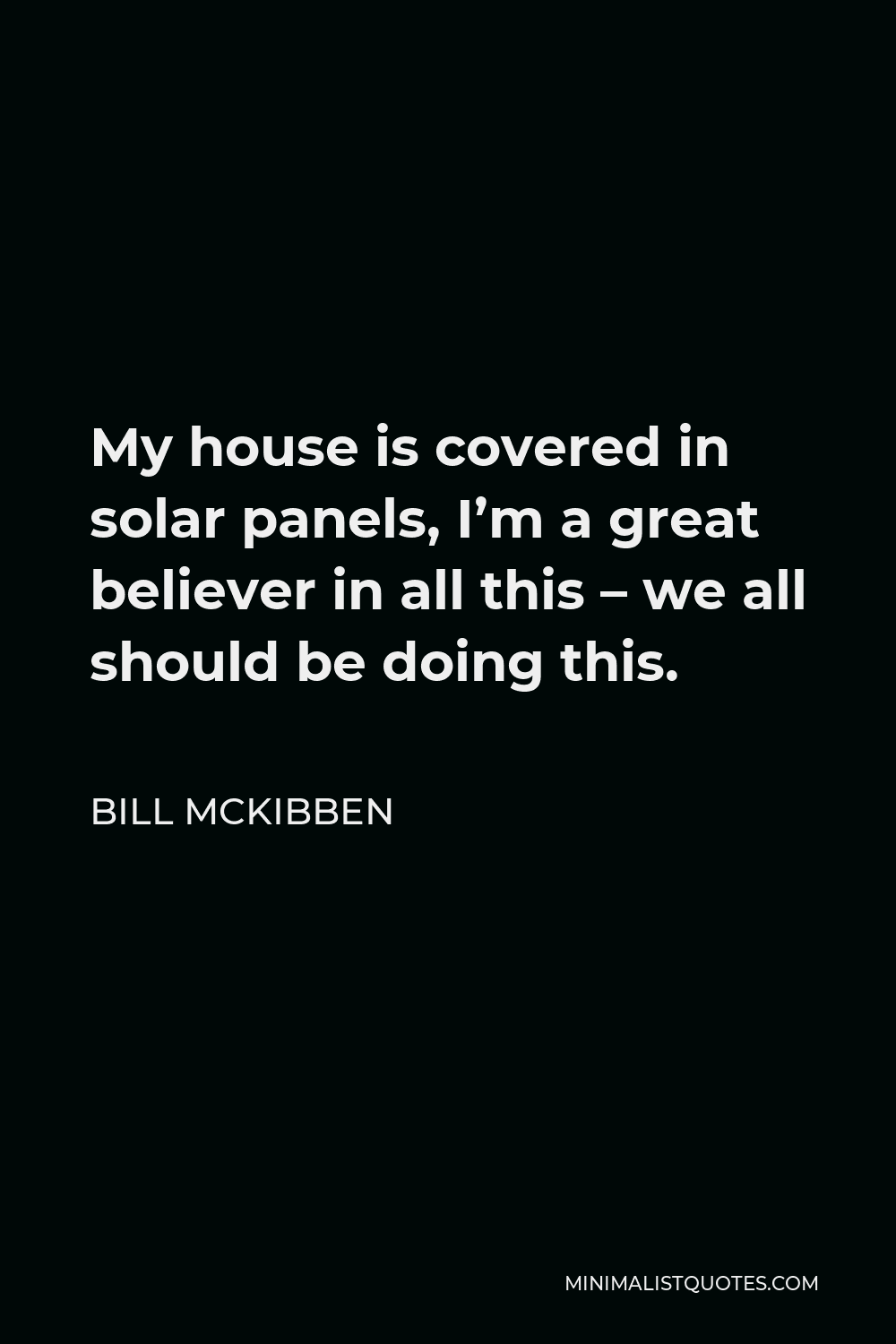
My house is covered in solar panels, I’m a great believer in all this – we all should be doing this.
BILL MCKIBBEN -





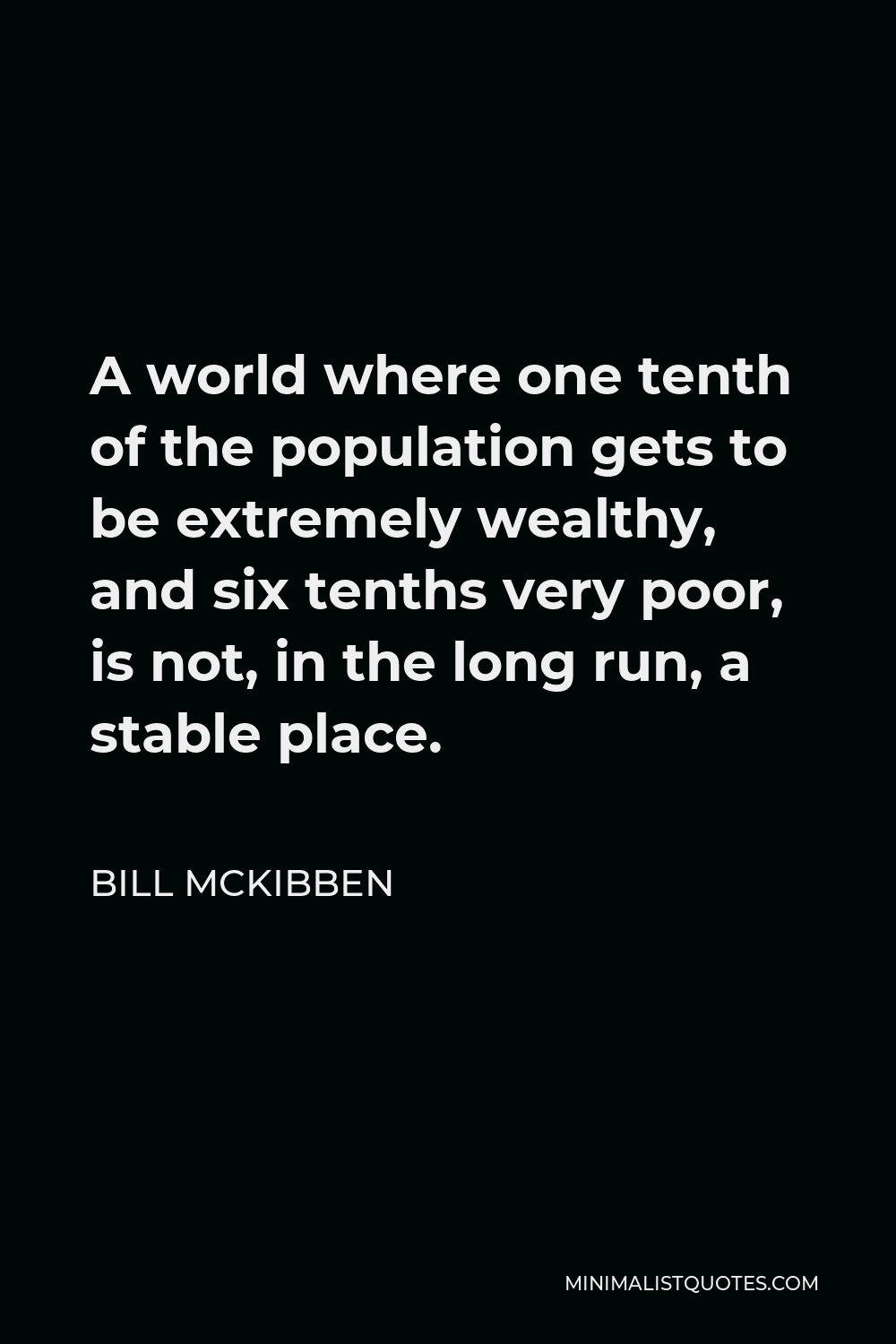
A world where one tenth of the population gets to be extremely wealthy, and six tenths very poor, is not, in the long run, a stable place.
BILL MCKIBBEN -





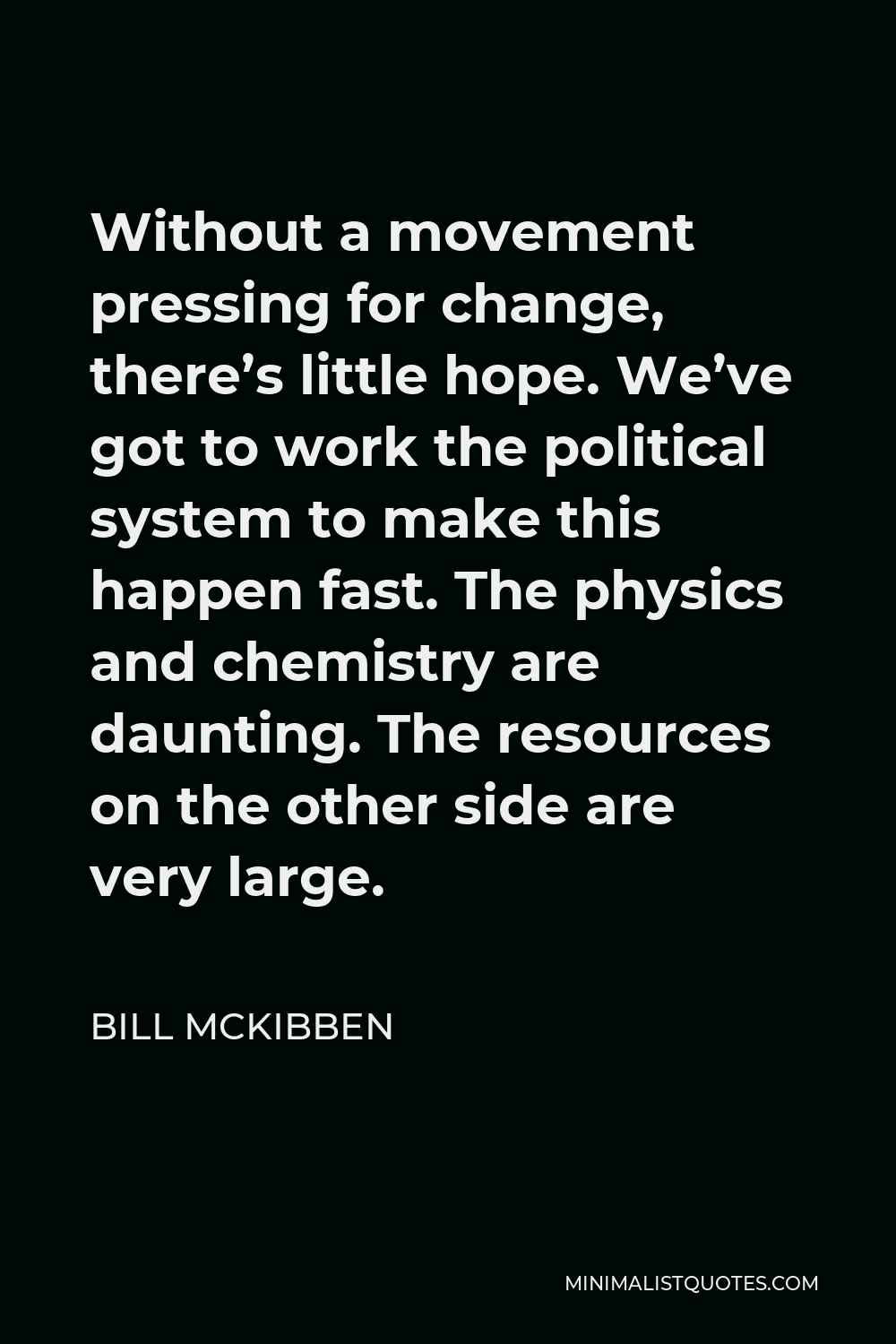
Without a movement pressing for change, there’s little hope. We’ve got to work the political system to make this happen fast. The physics and chemistry are daunting. The resources on the other side are very large.
BILL MCKIBBEN -





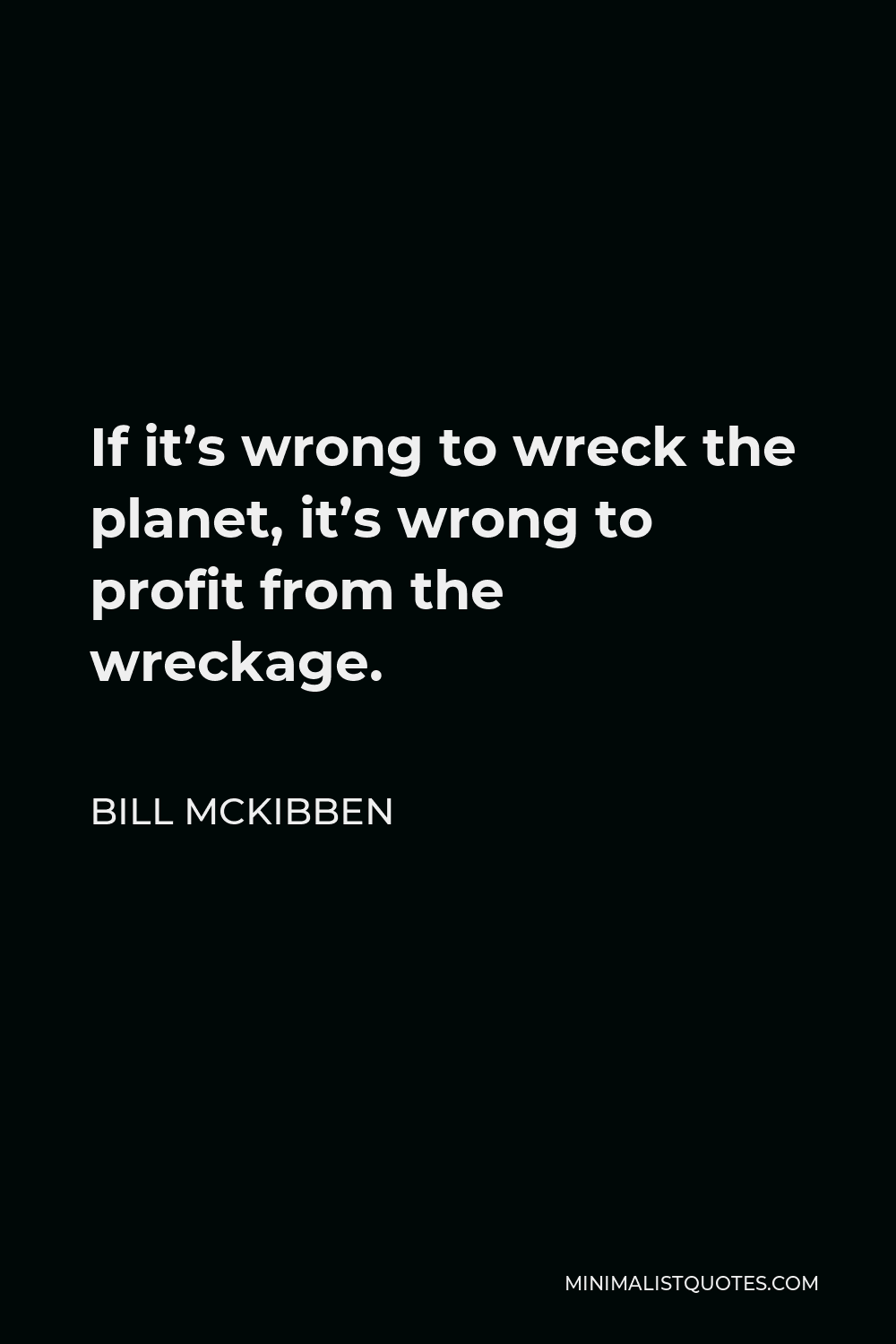
If it’s wrong to wreck the planet, it’s wrong to profit from the wreckage.
BILL MCKIBBEN -





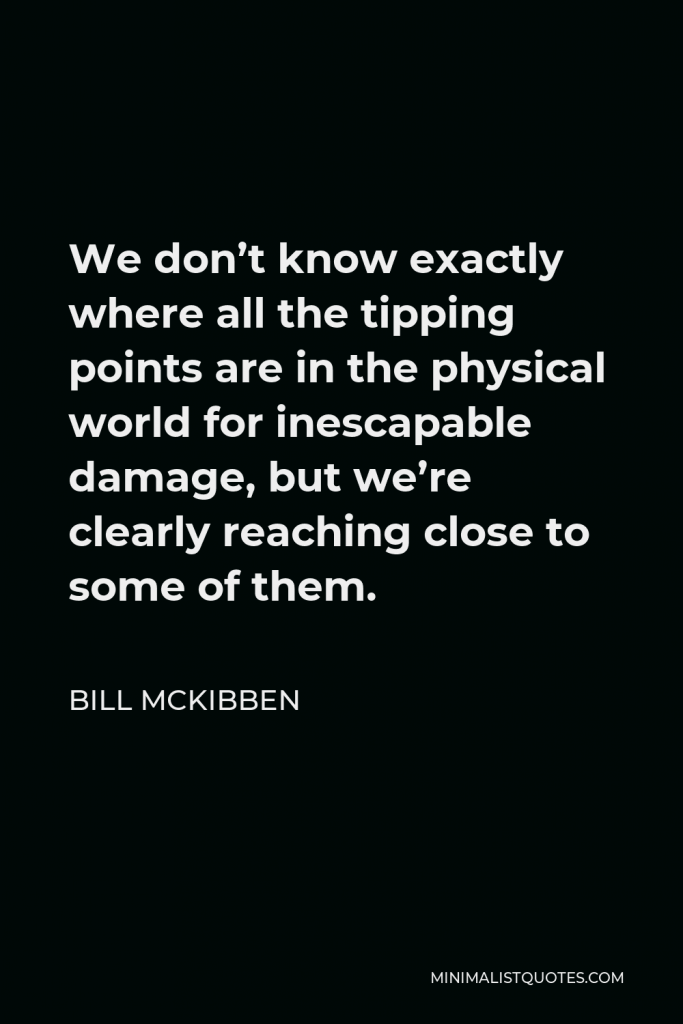

We don’t know exactly where all the tipping points are in the physical world for inescapable damage, but we’re clearly reaching close to some of them.
BILL MCKIBBEN -





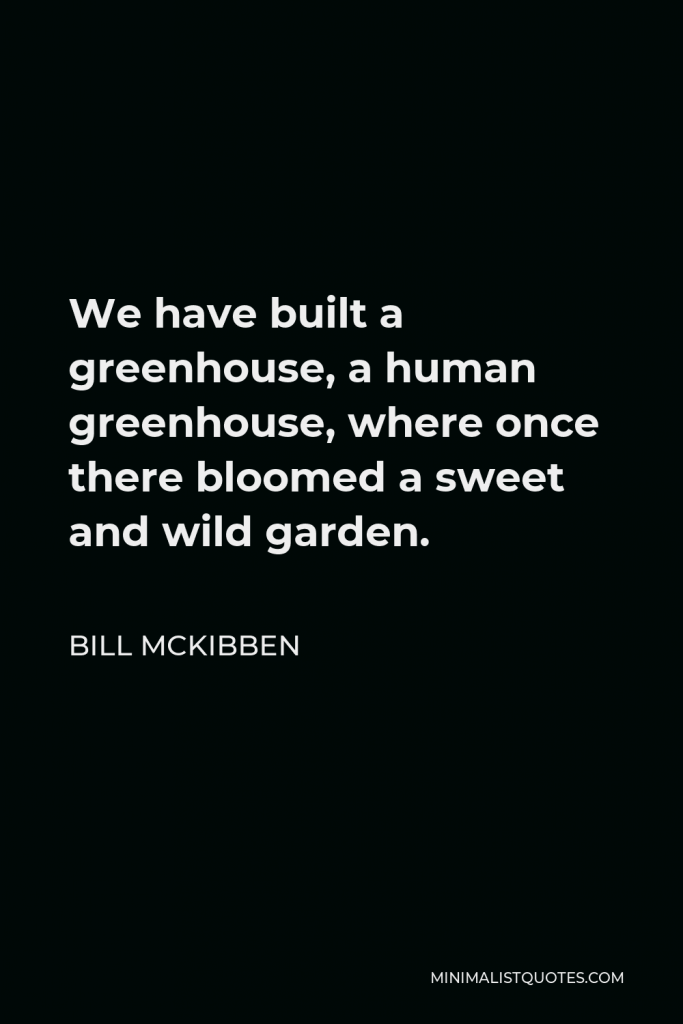

We have built a greenhouse, a human greenhouse, where once there bloomed a sweet and wild garden.
BILL MCKIBBEN -





![Bill McKibben Quote - There is nothing that will discombobulate and degrade [more] the lives of people near the margin on this planet. You don’t have to look much past New Orleans to see that. Who took the hit? Some of the poorest people in the U.S.](https://minimalistquotes.com/images/there-is-nothing-that-will-discombobulate-and-degr.jpg)
There is nothing that will discombobulate and degrade [more] the lives of people near the margin on this planet. You don’t have to look much past New Orleans to see that. Who took the hit? Some of the poorest people in the U.S.
BILL MCKIBBEN -





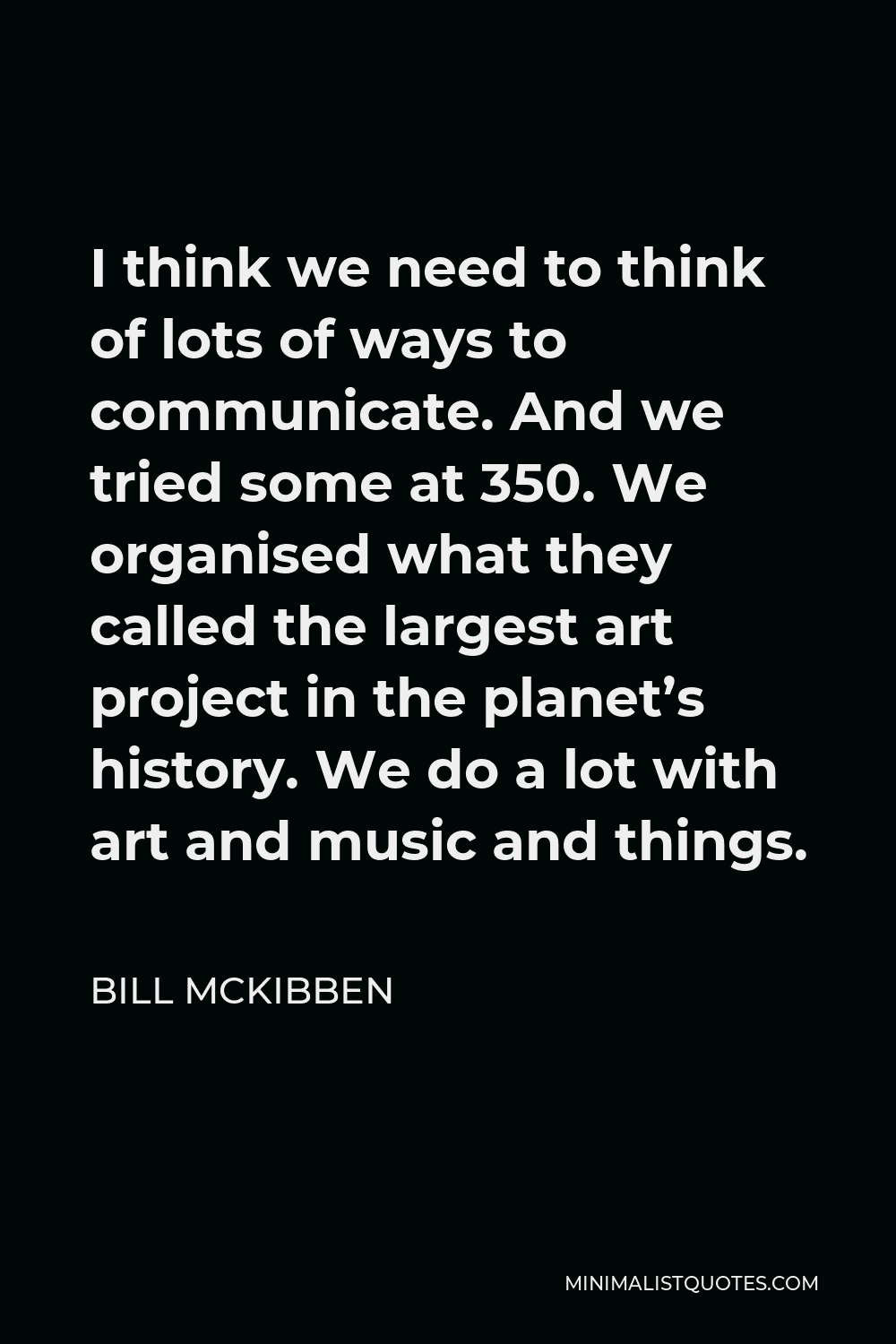
I think we need to think of lots of ways to communicate. And we tried some at 350. We organised what they called the largest art project in the planet’s history. We do a lot with art and music and things.
BILL MCKIBBEN -





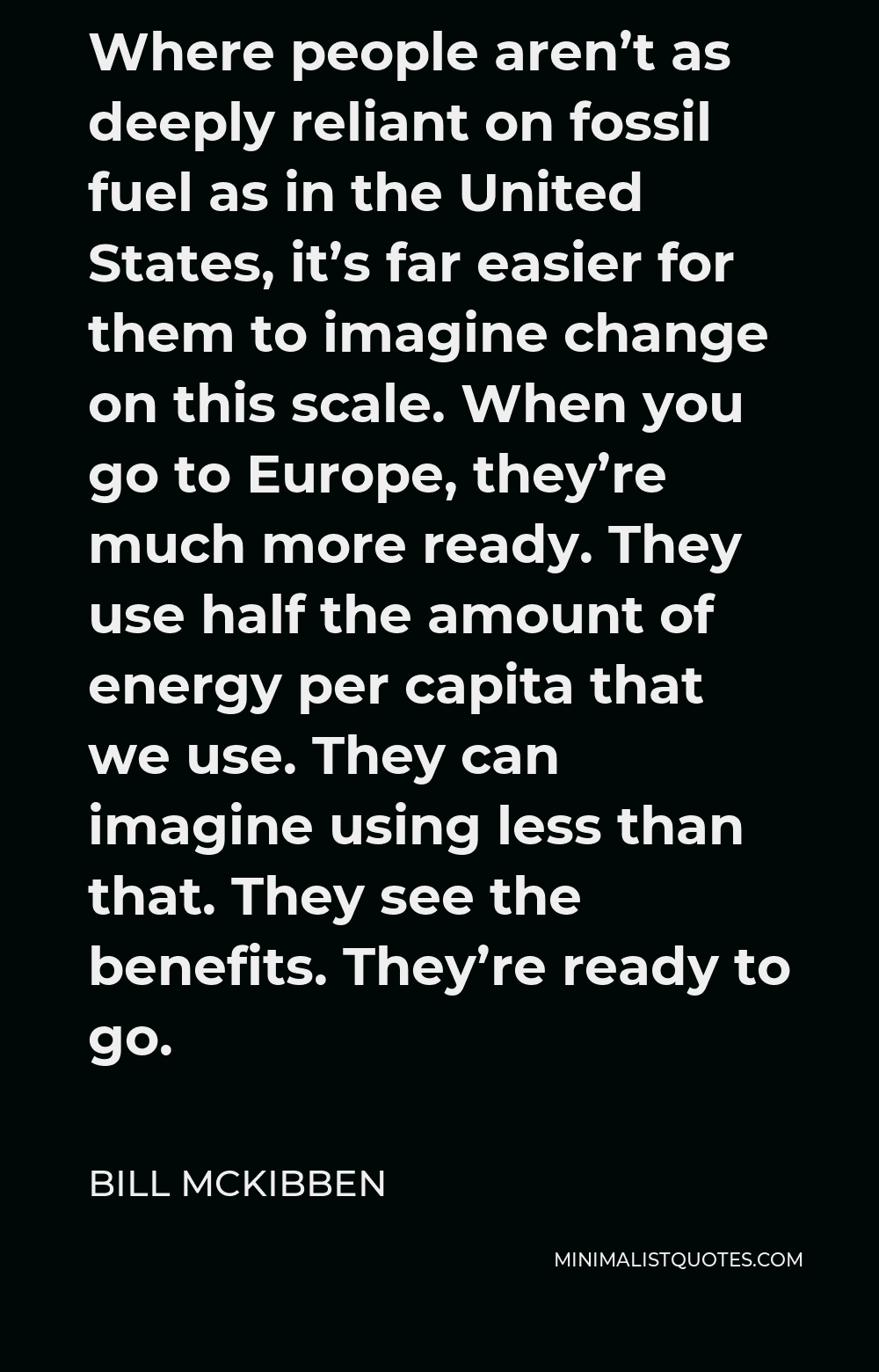
Where people aren’t as deeply reliant on fossil fuel as in the United States, it’s far easier for them to imagine change on this scale. When you go to Europe, they’re much more ready. They use half the amount of energy per capita that we use. They can imagine using less than that. They see the benefits. They’re ready to go.
BILL MCKIBBEN -





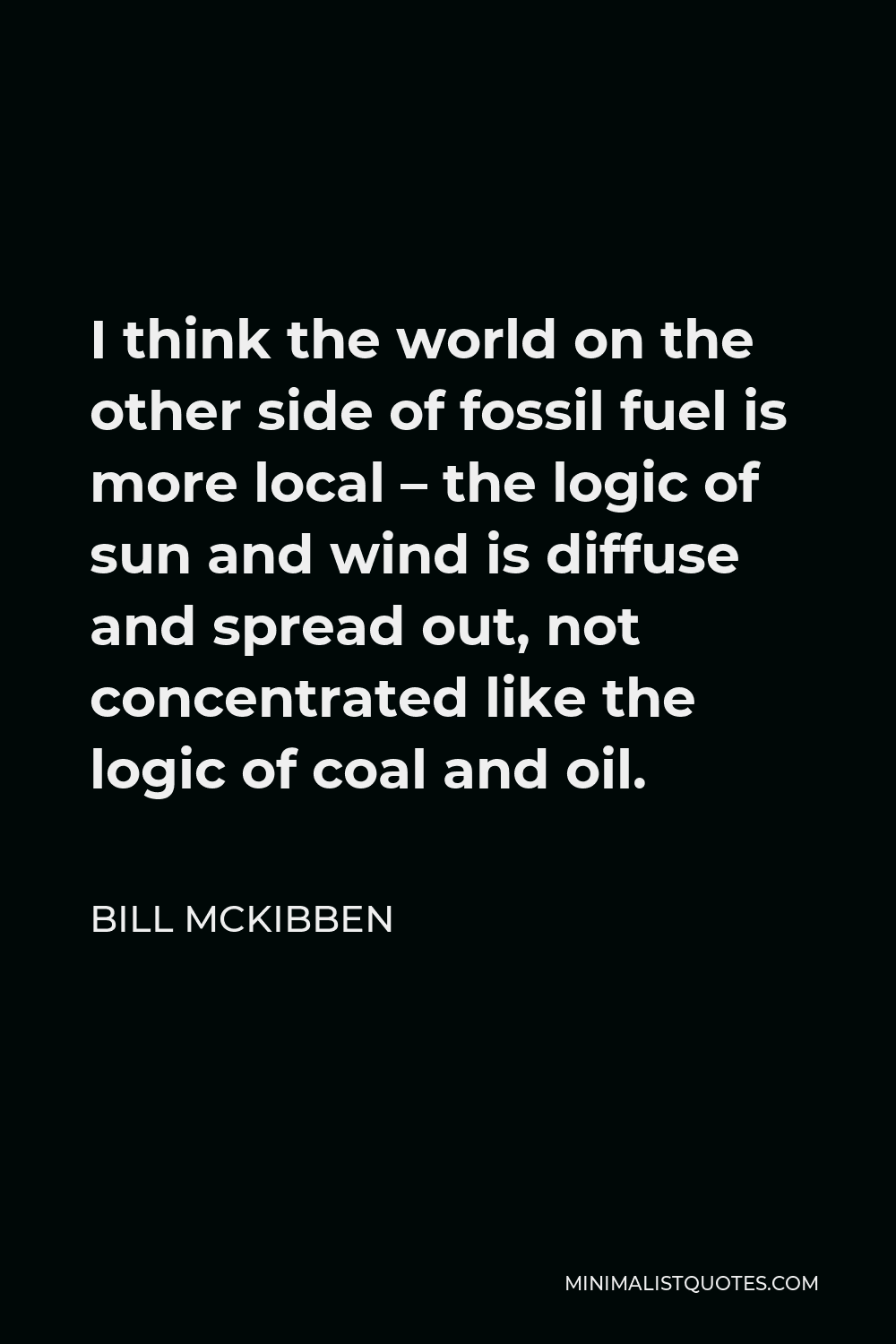
I think the world on the other side of fossil fuel is more local – the logic of sun and wind is diffuse and spread out, not concentrated like the logic of coal and oil.
BILL MCKIBBEN -





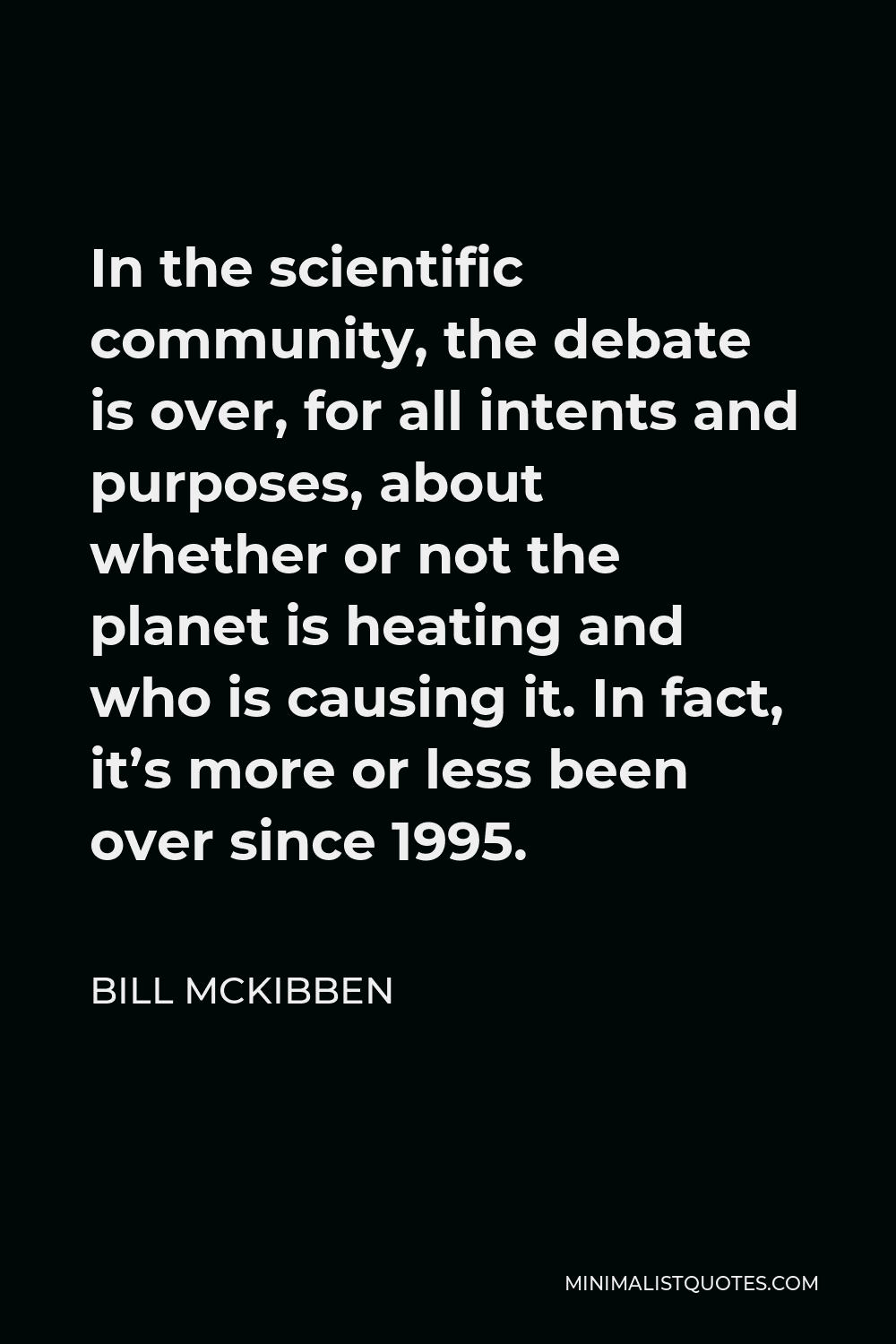
In the scientific community, the debate is over, for all intents and purposes, about whether or not the planet is heating and who is causing it. In fact, it’s more or less been over since 1995.
BILL MCKIBBEN
